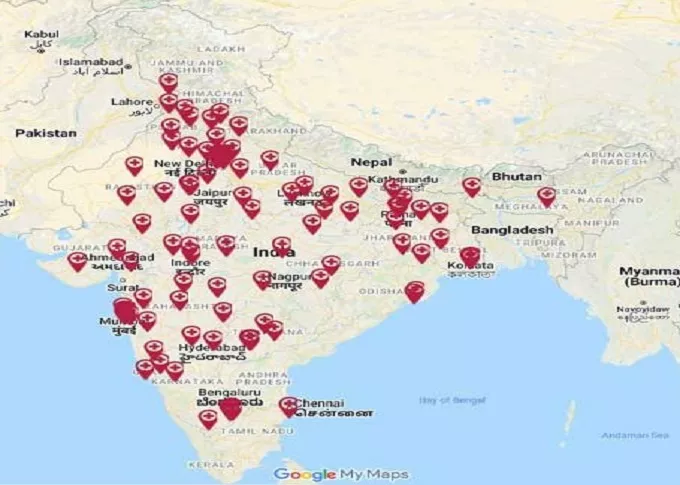What is Paternal Lymphocyte Immunization (PLI)?
In Paternal Lymphocyte Immunization (PLI), white blood cells from the intended father are separated from his blood and injected into the mother. Given that both the mother's and the father's genes are present in pregnancy tissues, PLI (LIT) Therapy helps the mother's immune system build immunologic tolerance to the genetically alien pregnancy tissues. If a woman has had several miscarriages or failed IVF attempts, she may benefit from this treatment. Immunological issues are typically a cause for these miscarriages or failures.
This therapy is used to address these shortcomings and raise the success rate. PLI Therapy was created to assist in preparing the immune system for pregnancy so that the immune system may assist in acclimatising the potential mother's body to foreign cells.
When is PLI (LIT) Therapy in IVF Necessary or Recommended?
PLI (LIT) Therapy in IVF is typically used following several unsuccessful IVF cycles and possible immunologic causes of poor implantation.
A normal pregnancy would allow the foetus to grow in the mother's uterus, and the growth would continue as an allograft that benefits from the foetus' and mother's immunological tolerance. However, there are instances where the mother's immune system rejects the foetus. Primary RPL (Recurrent Pregnancy Loss) aborters and Secondary RPL aborters are the two basic categories into which recurrent pregnancy losses may be divided. The secondary RPL aborters have at least one normal pregnancy, but the primary aborters have no history of normal pregnancy. Hormonal, Metabolic, or Uterine abnormalities are a few of the main reasons, even if the cause may not be discovered in 50% to 60% of instances.
Who can benefit from Paternal Lymphocyte Immunization (PLI) Therapy?
Up to 5% of couples who are of childbearing age may experience recurrent miscarriages. The women who experience recurrent miscarriages or numerous IVF failures owing to immunological reasons, PLI (LIT) Treatment can help them. Although additional research is required, it has been demonstrated that PLI increases the live birth rate in women who experience recurrent miscarriage and implantation failure.
How Does PLI Help Fertility Outcomes?
When immunological causes for unsuccessful embryo implantations are suspected, PLI (LIT) Therapy is frequently carried out. It is thought that because the developing embryo and foetal tissues are produced from both the mother and father's DNA, the mother's immune system mistakenly views proteins formed from the husband's share of the genome as foreign and attacks the developing baby. Paternal Lymphocyte Immunization (PLI) was created to make the mother's immune system ready for pregnancy so that it can help acclimate the potential mother's body to foreign cells rather than fighting and destroying the embryo or foetus.
By introducing paternal proteins, antigens, and cellular structures to the developing embryo or foetus in a "friendly" manner before they may be deemed toxic and lead to the termination of early pregnancy, PLI Therapy is expected to alleviate this detrimental reaction.
Benefits of PLI (LIT) Therapy in IVF
When a woman experiences repeated miscarriages, PLI treatment is one of the highly preferred medical procedures incorporated to increase her chances of getting pregnant. When individuals with immunological disorders take this treatment, the success rates are significantly greater. The benefits listed below demonstrate why LIT treatment is one of the greatest approaches to increasing their chances of pregnancy:
- Significantly Higher Rate of Success
- Patented & Researched Technology
- Having No Long-term Side Effects
- Single Seating Procedure
- Minimum Chances of Negative Side Effects
- Safe Procedure
- Simple and Easy Treatment
Possible Side-Effects Resulting from PLI
There were no significant adverse effects, such as graft versus host disease, allergy, or autoimmune issues, found in large research involving 4500 instances of Paternal Lymphocyte Immunization. The majority of adverse effects were local in nature. A burning feeling, swelling, irritation, redness, and pain or discomfort in the vaccinated arm, along with swelling, are just a few examples of these local yet trivial responses. A defining feature of LIT treatment is the presence of blisters at the injection sites. Malaise, a little temperature rise, and skin rashes are just a few examples of systemic symptoms that may appear.
Pregnancy Calculator Tools for Confident and Stress-Free Pregnancy Planning
Get quick understanding of your fertility cycle and accordingly make a schedule to track it
Get a free consultation!















